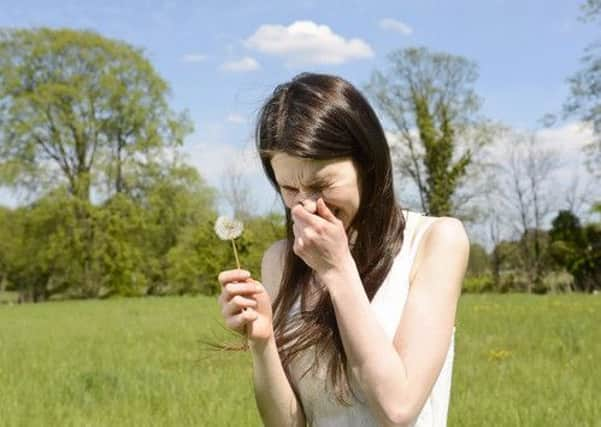Hay fever cases set to soar across Europe


The number of people allergic to ragweed pollen – a relatively minor yet significant cause of hay fever – will jump from about 1 million to 6 million in the UK in the next 35 years as the warmer weather increases the number of plants growing and the length of the season.
And although the study only looks at the pollen of the notorious invasive weed it suggests the effect of climate change on the number of allergy sufferers could be far wider as warming temperatures may increase the volume of pollen in other sources of hay fever, principally grass and trees.
Advertisement
Hide AdAdvertisement
Hide AdHay fever is already widespread in the UK with an estimated 18 million sufferers who can experience sore mouths, noses, eyes and throats when they come into contact with certain types of pollen.
“Ragweed pollen allergy will become a common health problem across Europe, expanding into areas where it is currently unknown,” said lead researcher Dr Iain Lake.
“Pollen allergy is a major public health problem globally but it has not been known what sort of an impact climate change will have. This is the first study to quantify that,” he added.
The rising pollen count is likely to increase the number of sufferers as well as the intensity of the allergic reactions in those who already suffer symptoms, the report said.
Advertisement
Hide AdAdvertisement
Hide AdA single ragweed plant may produce around a billion grains of pollen per season, which is carried by the wind. The study, published in the journal Environmental Health Perspectives, estimated that the number of people suffering from ragweed hay fever across Europe is likely to increase from 33 million now to 77 million as soon as 2050.
The study finds that climate change will account for about two-thirds of the increase in hay fever suffering – with the rest coming from the rapid spread of ragweed that would have occurred without global warming.